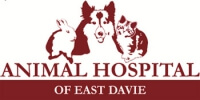How much and how often to feed your puppy/dog
One you’ve found the best dog food for your dog, you’re on the right track to providing the healthiest life possible. It’s important to feed your dog the right amount of food at proper intervals, but that can be tricky, as feeding requirements vary greatly from one dog to another. Feeding guides on the food can or bag are just a starting point. It’s critical to your dog’s health that his physical condition be monitored regularly and the feeding amount be adjusted as needed. Ask your veterinarian which of these feeding methods is best for your dog.
Adult Dog
Feeding a high quality dog food is on the most important things you as a dog owner can do to keep your dog healthy and active. A high quality dog food is one that is complete and balanced, containing all of the nutrient groups that are important for all dogs: protein, carbohydrates, fats, vitamins, minerals, and water. Proteins perform many functions and are important for growth, maintenance, reproduction, and repair of damaged issues. Amino acids are the building blocks on which proteins are formed. Essential amino acids are those that are required in the food because your dog’s body is incapable of synthesizing them in sufficient quantities. Non- essential amino acids are those that your dog’s body can synthesize so they are not required in the dog food.
Fats are an important energy source but are also required for various body functions. Fatty acids, a specific type of fat, play an important role in regulating the bodies inflammatory response and are particularly important for your dogs health- particularly for the skin and a coat.
Carbohydrates
Carbohydrates are another important source of energy for your dog. Carbohydrates include simple sugars such as glucose as well as more complex sugars such as fiber which helps keeps the intestinal tract healthy. Though there is not a minimum required carbohydrates requirement for dogs, carbohydrates present in dog food can provide a valuable source of fiber and energy, sparing the protein in the dog food for more important body functions.
Feeding your Senior Pets
Dogs begin to show visible age-related changes at about seven to twelve years of age. There are metabolic, immunologic, and body composition changes too. Some of these are unavoidable. Others can be managed with diet. Since smaller dogs live longer and don’t experience age-related changes as early as bigger dogs, size is used to determine when it’s time to feed your canine a senior diet.
- Small breeds/dogs weighing less than 20 pounds — 7 years of age
- Medium breeds/dogs weighing 21 to 50-pounds — 7 years of age
- Large breeds/dogs weighing 51 to 90 pounds — 6 years of age
- Giant breeds/dogs weighing 91 pounds or more — 5 years of age
The main objective in the feeding an older dog should be to maintain health and optimum body weight, slow or prevent the development of chronic disease, and minimize or improve clinical signs of diseases that may already be present. As a dog ages, health issues may arise including, deterioration of skin and coat, loss of muscle mass, more frequent intestinal problems, arthritis, obesity, dental problems, and decreased ability to fight off infection. Avoid senior diets that have reduced levels of protein.
Studies have shown that protein requirement for older dogs doesn’t decrease with age, and that protein levels do not contribute to the development or progression of renal failure. It is important to feed older dogs diets that contain optimum levels of highly digestible protein to help maintain good muscle mass. Routine care for geriatric pets should involve a consistent daily routine and periodic veterinary examinations to assess the presence or progress of chronic disease. Stressful situations and abrupt changes in daily routines should be avoided. If a drastic change must be made to an older pet’s routine, try to minimize stress and to realize the change in a gradual manner.
Diets Recommended & Foods to stay away from
There are certain diets that you need to avoid to keep your dog healthy. Stay away from diets that contain artificial coloring or flavoring. Also stay away from diets that have a chewy and moist texture. Brands that are recommended include Purina, Hills, Royal Canine, Iams, Blue, Pedigree. Feeding these diets will help your animal maintain a healthy body weight, help with their coats, and help them to live a healthy life.
